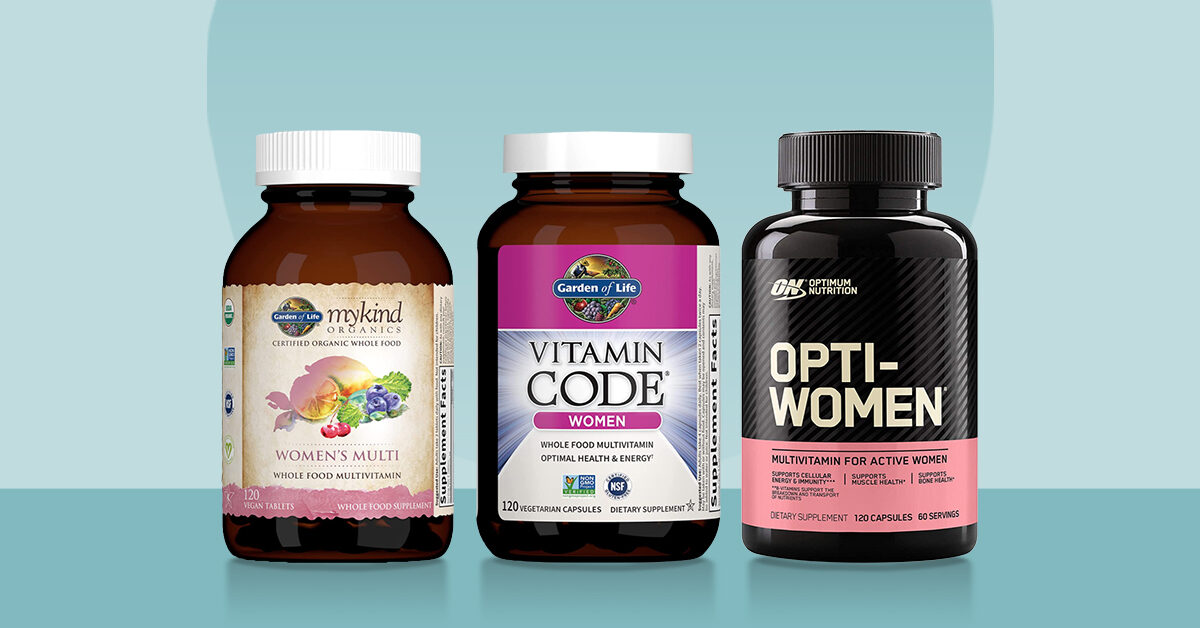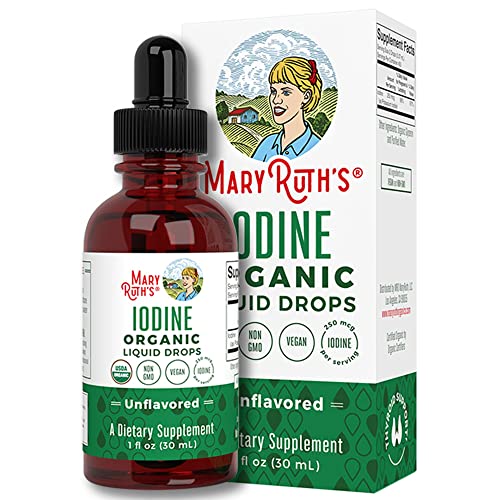Best Organic Mineral Supplements Of 2024
Brandon Forder Apr 25, 2024 9:39 PM
Choosing the best organic mineral supplements is a good way to ensure you're getting the nutrients you need to keep your body healthy and functioning properly. It's also a good way to avoid the pitfalls of synthetic supplements, including high costs and the potential to cause harm.

Compare Products
Last update on 2024-04-25 / Affiliate links / Images, Product Titles, and Product Highlights from Amazon Product Advertising API
Humic acid
Whether you are looking for a supplement for the health of your immune system, or for cognitive enhancement, humic acid in organic mineral supplements is a great option. These compounds are naturally found in plant matter, and they provide the benefits of antioxidants, amino acids, enzymes, and trace minerals.
They are ionic in nature, and have a strong affinity for binding with water compounds. They are often combined with other minerals to form a mineral complex. The particles are already in suspension, so they are easier to absorb and exchange.
These minerals also act as natural chelating agents. They bind with toxic heavy metals in the soil and draw them out. They also draw out other toxins.
Fulvic acid is a large molecule, but it has smaller particle sizes than humic acid. The particle size plays a significant role in determining the properties of each substance.
Both humic and fulvic acids are ionic in nature, and they are water-soluble. Humic acids are soluble in alkaline pH solutions, but fulvic acid is not soluble in acidic pH solutions.
Fulvic acid is a natural substance that comes from the decomposition of dead plants by microorganisms. It is also found in trace quantities in the soil. It has been found to be very beneficial to soil health, and it is known for its ability to improve the growth of plant shoots.
These compounds are also effective in removing toxins from the body. They work to chelate toxins and convert them into usable forms, allowing the body to fight more serious threats.
Fulvic acid
Thousands of years ago, people used peat, mud and other substances to help treat various diseases. Today, people are turning to food grade supplements to help boost their nutrient intake. One of the most important factors in choosing a supplement is the concentration of minerals in the product. A good mineral supplement will contain all of the minerals needed by your body.
Fulvic acid is a complex organic compound that is made from tiny atomic units of nitrogen, hydrogen and oxygen. Fulvic has been known to boost cellular and immune functions, increase circulation, and increase antioxidant activity. It also improves gut health and digestion.
Fulvic acid is a natural chelator that helps remove harmful minerals from your body. It's a powerful antioxidant that helps protect your body against oxidative stress. It may also slow the progression of cancer. It's also been used to treat athlete's foot and poison ivy.
Fulvic acid is produced by bacteria at the root of plants. The bacteria need moisture and food to thrive. The bacteria also produce several enzymes. These enzymes help with agriculture processes and water filtering.
Fulvic acid is a complex molecule that is made of several ionic trace mineral bonds. These bonds help the fulvic molecule carry more nutrients. In addition, it helps transport minerals into cells more efficiently.
Aside from being a natural chelator, fulvic acid also improves immune function. It's also been used to help treat various conditions, including viral infections and spider bites. It's also been shown to improve brain function.
Liquid trace minerals
Using liquid trace minerals in organic mineral supplements is a simple and effective way to support your body's essential functions. These minerals have a wide variety of health benefits. They can help with the absorption of essential nutrients, maintain healthy energy levels, and support the body's immune system.
Some of the most common trace elements include Magnesium Chloride, Calcium Chloride, Silicon Chloride, and Potassium Chloride. These are all naturally occurring trace elements. However, they are not always found in the diet.
These trace elements are most easily produced in inorganic form. They are inexpensive to administer and are relatively easy to obtain. But they are structurally different from other trace elements.
If you are looking for an organic trace mineral supplement, you should look for one that is derived from plant sources. These are the safest and most absorbable. Plant-derived trace minerals are absorbed much more efficiently than synthetic minerals.
In addition, plant-derived trace minerals contain natural fulvic acid, which is a nutrient essential for balancing nutrient levels in the body. This fulvic acid makes the trace minerals highly bioavailable.
Taking a trace mineral supplement will help you maintain healthy energy levels and prevent debilitating diseases. It will also support the body's blood and immune systems. It can be beneficial to athletes, as well as those who aren't able to get enough trace elements in their diet.
Another benefit of taking a trace mineral supplement is that it can be added to many foods without altering their taste. You can also combine trace minerals with a variety of drinks, such as juice or water, for a deliciously flavored supplement.
Iodine
Getting enough iodine is important for your health. This trace mineral plays a crucial role in the production of thyroid hormones. It is especially important for pregnant women, as it helps to keep the fetus' brain tissue healthy. It also helps to support the metabolic rate of the body.
Getting enough iodine in your diet is easy. You can find it in many foods, including milk, seafood, vegetables, and whole grains. You can also find iodine in supplements, but be sure to check the label for ingredients. Some supplements contain artificial sweeteners, preservatives, and animal products. You should only take a supplement if you have a medical condition. If you have questions about a supplement, it is best to discuss it with your healthcare professional.
In addition to dairy products, other foods that are rich in iodine include seaweed, nuts, seeds, legumes, and whole grains. Supplements are available in many forms, including pills, tablets, gummies, and capsules.
The amount of iodine in foods varies from season to season and from farm to farm. It depends on the soil, geology, and farming practices. In winter, the iodine content increases. This may be a result of less feeding of goitrogenic plants.
The level of iodine in raw milk may differ between conventional and organic farms. The total iodine content of milk samples from conventional farms was 2.27-fold higher than organic farms.
Potassium
Adding potassium to your diet is a great way to maintain cardiovascular health. The mineral is an electrolyte and plays an important role in acid-base balance, water balance and the transmission of nerve impulses. It also helps prevent convulsions, tetany and unsteady gait.
The FDA allows over-the-counter potassium supplements to contain up to 100 milligrams of potassium per dose, which is not a lot of the red metal. It is not recommended for use by pregnant women or those with kidney problems.
There are a number of different ways to add potassium to your diet. For starters, you can use seaweed. These supplements are available in liquid and dried forms. Another is granite dust. It is relatively cheap and slow to release minerals.
You can also purchase kelp meal, which is also available in dried or liquid forms. Greensand is another great source of potassium. These can be mixed into compost or used as a fertilizer.
Having a good mineral supplement should include enough macrominerals (calcium, magnesium, iron, zinc and potassium) and trace minerals (chromium, iodine, molybdenum, nickel and silicon). You should also be mindful of the salt content. Mineral supplements should contain 10 to 25 percent salt.
Adding a potassium supplement to your diet is a great way to increase your intake of the mineral, but it's important to note that the most important benefit of potassium is its role in heart health. Potassium can counter the negative effects of an acidic diet, and it's best to avoid too much potassium in your diet.
Chromium
Whether you are concerned about your cardiovascular health or want to lose weight, chromium may be right for you. Chromium helps with the breakdown of fats and proteins. It also improves insulin sensitivity and can reduce cholesterol and blood lipid levels.
Chromium supplements may also benefit people with insulin resistance or psychological disorders. They can improve brain function and lower lipid levels, while lowering the risk of heart attack. The best chromium supplements are free of synthetic additives and other ingredients.
Chromium is one of the essential trace minerals. It is found in many foods, including spinach and molasses. The body uses chromium to break down insulin and regulate blood glucose. It also helps the body produce energy from food.
Chromium is found in lean meats and whole grains. It may help with bone health and body composition, and may help reduce cholesterol and blood lipid levels. Having low chromium can lead to increased blood sugar levels and sugar intolerance. Taking chromium supplements may also improve heart recovery after a heart attack.
While studies have shown that chromium supplements can have a positive impact on cholesterol, heart health, and weight loss, more research is needed. Until more is known about chromium and its effects, people should consult with their doctor before taking supplements.
Chromium is a trace mineral that helps with blood sugar control and may also lower the risk of heart disease. Chromium supplements may also help people with weight loss and diabetes.
































